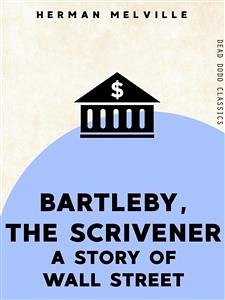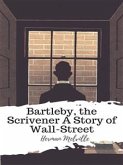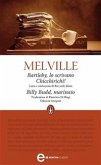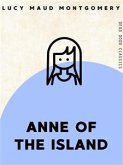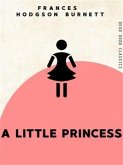"Bartleby, the Scrivener: A Story of Wall Street" is a short story by the American writer Herman Melville (1819–1891). It first appeared anonymously in two parts in the November and December 1853 editions of Putnam's Magazine, and was reprinted with minor textual alterations in his The Piazza Tales in 1856. Herman Melville may have written the story as an emotional response to the fact that Pierre, his preceding novel, was published to bad reviews. Christopher Sten writes in "Bartleby, the Transcendentalist: Melville's Dead Letter to Emerson" Melville found inspiration in Ralph Waldo Emerson's essays, particularly "The Transcendentalist" which shows parallels to "Bartleby". Bartleby is a scrivener—a kind of clerk or a copyist—"who obstinately refuses to go on doing the sort of writing demanded of him." During the spring of 1851, Melville felt similarly about his work on Moby Dick. Thus, Bartleby may represent Melville’s frustration with his own situation as a writer, and the story itself is “about a writer who forsakes conventional modes because of an irresistible preoccupation with the most baffling philosophical questions.” Bartleby may also be seen to represent Melville's relation to his commercial, democratic society. Melville made an allusion to the John C. Colt case in this short story. The narrator restrains his anger toward Bartleby, his unrelentingly difficult employee, by reflecting upon "the tragedy of the unfortunate Adams and the still more unfortunate Colt and how poor Colt, being dreadfully incensed by Adams ... was unawares hurled into his fatal act." Bartleby's character can be read in a variety of ways. Based on the perception of the narrator and the limited details supplied in the story, his character remains elusive even as the story comes to a close.
Bitte wählen Sie Ihr Anliegen aus.
Rechnungen
Retourenschein anfordern
Bestellstatus
Storno

